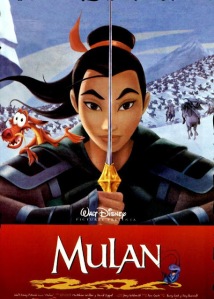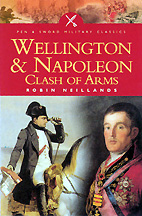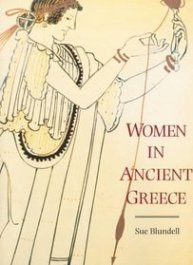Before I read this book, I knew literally nothing of China’s history. And by nothing, I mean ‘Er, there were some emporers, a dude called Mao who killed a whole bunch of peasants, and a couple of hundred pandas’.
So yeah, pretty much nothing.
I decided it was high time I attempted to fill this hilarious gap in my knowledge, since the people of this fascinating land constitute, oh, only about 1/5 of the entire world population.
Despite the fact that this book was staggeringly long, (though really, for a history of such a huge country it was ridiculously short) it had me absolutely gripped from start to finish. It was incredible. Part of this down to the fact that Keay’s analysis fantastically brought the history to life. Most of it was due to the history itself being utterly edge of your seat gripping. The murders at court, the political intrigues, the flowering culture, the epic battles on insane scales – China’s history is nothing if not exciting.
At the start of the book, John Keay goes straight in there with the mythbusting. Why is it that historians always insist on shattering my childhood illusions?
List of Lies:
1) You can see the Great Wall from space? Don’t make me laugh. We have Ripley’s Curi-oddities to thank for that ridiculous urban myth (and I used to believe those books and everything!).
2) On the subject of the Great Wall, it’s not unbroken either. Neither is it, or has it ever been, a boundary of China. All those big stone bits? They’ve been rebuilt just for you to look at. Most of it’s kinda falling down…
3) The Long Canal… is not one canal. It’s lots of canals. Sorry if you were going to try and kayak the whole thing.
4) You may have heard of Mao’s Long March as a triumph of Mao’s awesomeness – in true Moses like style he led his Communist followers to salvation halfway across China, all the while under heavy fire from the Nationalists. What a hero!
Actually, they should rename it Mao’s ‘I Was Carried On a Litter the Entire Way and Was So Bad at Navigating That We All Got Lost Multiple Times so it took us a Whole Year and No there Weren’t any Nationalists Firing At Us, Sorry I Lied, but Who Cares, because All of China is MINE!’
5) This isn’t a myth bust… but guess how much it costs to lease out a panda for a year. Just one panda… for one year.
2 MILLION DOLLARS!
Sorry if you wanted to start a zoo.
History to the Chinese
I was not entirely surprised to discover that Chinese history books have themselves had four entire rewrites in the past century alone. I was, however, astonished to discover how highly the Chinese value their history.
Whenever new dynasties or ideas came to hold power, they would do so not by claiming to be heralding a new age, but by using the past as a legitimiser. Instead of wanting to look forward, and be original, in China it was crucial to look back to the past, and attempt to emulate the incredible deeds and noble regimes to be found there. As far as the Chinese were concerned, things were only going downhill from here, and the better you wanted to be, the more you had to act like they did in olden times.
History is appreciated in China as an incredibly powerful tool, and at any particular time needs to be presented in different ways to make the ruling powers look as good as possible. This means that many historical events and characters often flip between good and bad in their official representation.
In legend for example, there is a story of a girl called Meng Jiangnu who stood up to the first emporer, and brought down the Great Wall with her tears. She is normally considered a popular hero. However, under Mao’s rule, Meng was likened to counter-revolutionaries who wished to topple the communist regime, and she was cast in culture as repulsive, the story attacked and deemed invalid. Confucianism also became under attack from the Communist Party in 1974 because Confucius’ reactionary teachings were being associated with the politician Lin Biao who they were toppling from favour.
History in China has always been of utterly vital importance, and they’ve been recording their own history for millenia. Old Chinese histories have been poured over through the centuries with the same reverance as for religious texts. There have been huge beuracracies in place under Chinese emporers with officials court historians writing down every little detail pretty much ever since the Chinese have had emporers. And that’s been 2000 years.
This seems to me incredibly bizarre, coming from a country infamous during the Dark Ages for where apart from a couple of monks, no-one wrote down a single blasted thing. ‘History?’ thought the battling Picts, the Saxon peasants and the angry Viking invaders, ‘Pah! History is for wimps… and historians’, and with that they all got back to stabbing eachother. Meanwhile, in China, everyone was practising calligraphy and painting pictures of bamboo shoots.
So, you’d think that this wealth of Chinese history would be great, because we can find out all about China, since they’ve helpfully been writing it down for ever. Right?
There’s just one problem.
In the past 100 years or so, more and more archaelogical evidence has been coming to light – evidence which often utterly conflicts with what used to be the standard, accepted view of Chinese history. This is the idea that China has been a single civilisation under fairly autonomous and continuous rule for over 3000 years, and that as a civilisation it and its culture expanded outwards over the years from the central northern plain. Evidence from the ground suggests that this is not the case – rather, different cultures and communities developed and evolved in different regions, some very far from the traditional Chinese heartland. The bronze age dynasties written about by history such as the Xia, if they did actually exist, would only have ruled over a small area – and it might not even have been the ‘right’ area.
For many years the Chinese government weren’t happy about this at all, because the traditional view is that Empire= Good, Random Little Countries= Bad. They even went so far as to hiding or ignoring discoveries which discredited traditional ideas (which I find pretty shocking). More recently, however, these newer ideas (which unsurprisingly were often touted by foreigners) have become more widely accepted.
Some people have even started to question whether empire should even be considered a good thing, which had never even occured to me. Arguably, culture flourishes better under regional rule, and without a neurotic central power attempting to control everything , people may have led better lives. Personally, I can’t imagine that humans in general will ever stop seeing ancient empires as the more impressive historical alternative; I think it’s part of human nature to see huge regimes bringing shared ideals and autonomy as something glorious to be aspired to.
Unless of course the empire is Persian and you’re watching 300.
However, the finds don’t always disagree with the writings. Take the terracotta army for example – this almost unbelievable find had been written about by China’s grand historian Sima Qian of the 1st Century BC. This has led some historians to be more believing of some of the claims Sima made which have previously seemed more than a little outlandish: for example that the First Emporer’s tomb contains flowing rivers of mercury, and that once coming across a hill in his path, he had it stripped bare and painted red – a sign of criminality. What I believe is that if the man was capable of burying an army of clay men, then why not of painting a whole hill too?
This still leaves the impossible question: How to reconcile the written histories of China with the newer archaeological evidence? It doesn’t seem like anything you’d ever be able to do to me until we have exhausted all possible sources of evidence – maybe China will just have to have two separate histories written about it from now on. John Keay goes a little way towards addressing this problem, suggesting for example that discovered communities of Longshan may be tenously equated to the mystical Xia dynasty.
As it is however, it is impossible to distinguish how long ‘China’ has infact been ‘China’. Some historians would claim that 3/4 of Chinese recorded history has been continuous and coherent – well really, it’s all to easy to slash that number to 1/4 and less. There have been large periods of general battling in Chinese history – most famously the ancient Warring States and Spring and Autumn periods in about 500-200BC, which ended with the first establishment of the first Empire, the Three Kingdoms period after the collapse of the Eastern Han dynasty in 220AD, and the 5 Dynasties and 10 Kingdoms period after the collaps of the Tang dynasty in about 900AD. Can you count these bits as part of the continuous timeline? Do you count in the large periods where dynastic control, though still officially ‘there’, was waning and barely tangible? Where do you start and end your timeline? And which ethnic groups do you even count as Chinese, for heaven’s sake?
I had no idea it would all be so confusing.
Despite this, it is true that (unlike what I’m used to reading about in European history where empires are constantly crumbling) in a sense, the Chinese empire never actually truly falls…until, of course, it does, in 1912.
Oh yes, dynasties fall, over and over again, and parts of the empire are always being overrun by rebels and Mongols and declaring themselves separate empires… but this idea of ‘China’ in some ways never actually ceases to exist. When one dynasty crumbled, the Heavenly Mandate – ie, the bumper sticker declaring ‘I Am the Official Dynasty’ – was simply transefered to the next ruling family. Or at least the one that appeared to be ruling more of China than everyone else… even when that family was headed by Mongols (and it happened more than once). Thus the empire continued. It may have continued in an extremely jumbled, heavily contested fashion… but I guess you could then argue that at least it did continue.
And who decided, often after they’d all ended which dynasties had in fact been the legitimate ones?
Ah well, that’d be the historians of course. 😉
Tangent Alert: Bonus Red Cliff Review
In 208 AD, during the fall of the Han dynasty, the three warring kingdoms of Shu, Wu and Wei battled it out for control of the Chinese empire. Shu and Wu (and their respective leaders Liu Bei and Sun Quan) formed an alliance against Cao Cao’s Wei in the North (stereotypically portrayed as a baddie in the movie). The battle of Red Cliff which followed went down as one of the pivotal moments in Chinese history.
I figured I’d now actually have enough contextual knowledge to understand and appreciate these awesome events in movie form, and decided to reward myself by watching John Woo’s *historical* epic Red Cliff.
Of course, it was also a thinly veiled excuse to watch a load of attractive Asian men beat the crap out of eachother.
Although it didn’t stop me from loving the film, at first I thought my Western brain was going to drown under the multitudes of Chinese characters. Frequent referal to the plot synopsis on Wikipedia kept me on top of the storyline, but even then I gave up trying to classify secondary characters as anything more than ‘good’, ‘evil’ or ‘irritating love interest’.
Guess which category she falls into.
In fact, it proved far more fun to interpret everything as a tragic love triangle between Sun Quan and the viceroy Zhou Yu who were clearly vying for the attentions of Liu Bei’s lead strategist Zhuge Liang. This wasn’t difficult, as they kept exchanging heavy, intense gazes to the strains of suspiciously romantic sounding music. Not to mention the ten minute scene where they do nothing other than play zithers and stare longingly at eachother in the candlelight. 😉
Unrequited sexual tension…
As far as seriously epic fight scenes go, this film is a must – it was pretty awe-inspiring. As well as a gutsy heroine for me to cheer on, there was even an ancient chinese equivalent of Gimli, ie. short, hairy, growls a lot and kicks arse.
It still only counts as one!
All the men in the film seemed to possess god like powers of awesomeness. There’s this one scene where a dude goes full on Bruce Lee and takes out a whole contingent of soldiers with this one pole, all the while with a new born baby strapped to his back. On top of this, they all have these brilliant top knots which stay absolutely perfectly coiffed no matter how many bloody battle scenes they power through.
Oh, and though she doesn’t appear in this film, guess who else is supposed to have been riding around China kicking butt at this point in history?
Awwww yeah! Only in ancient china, my friends.
🙂










































